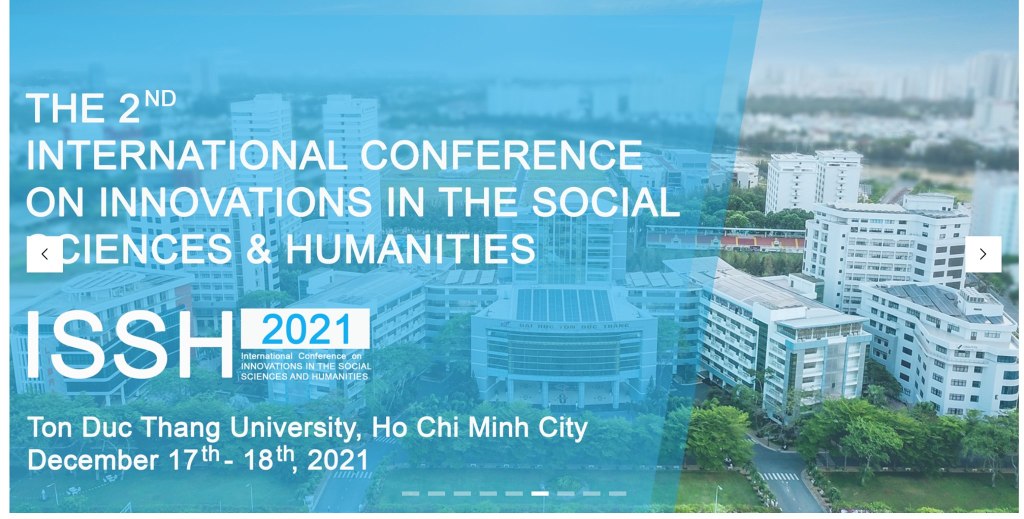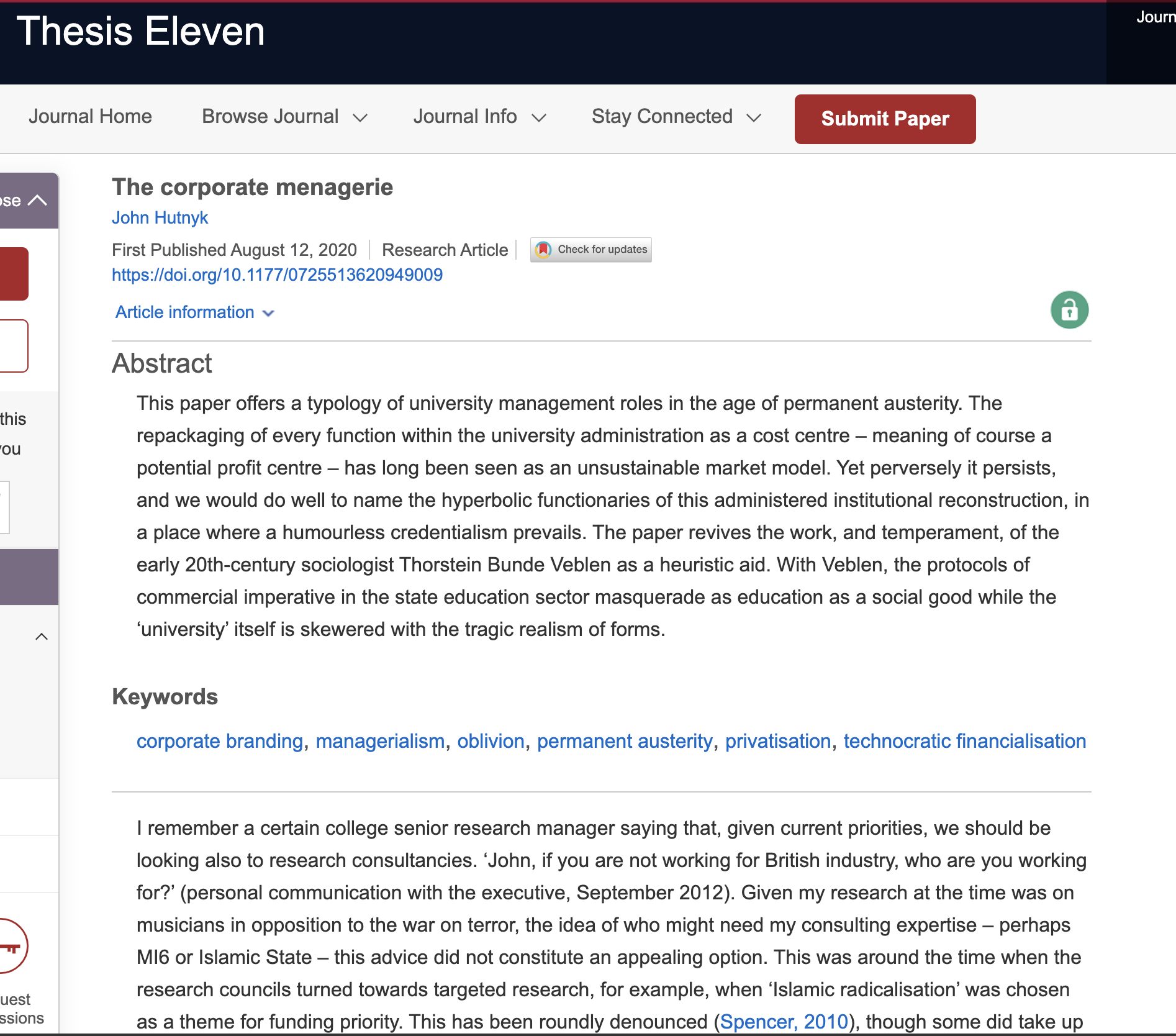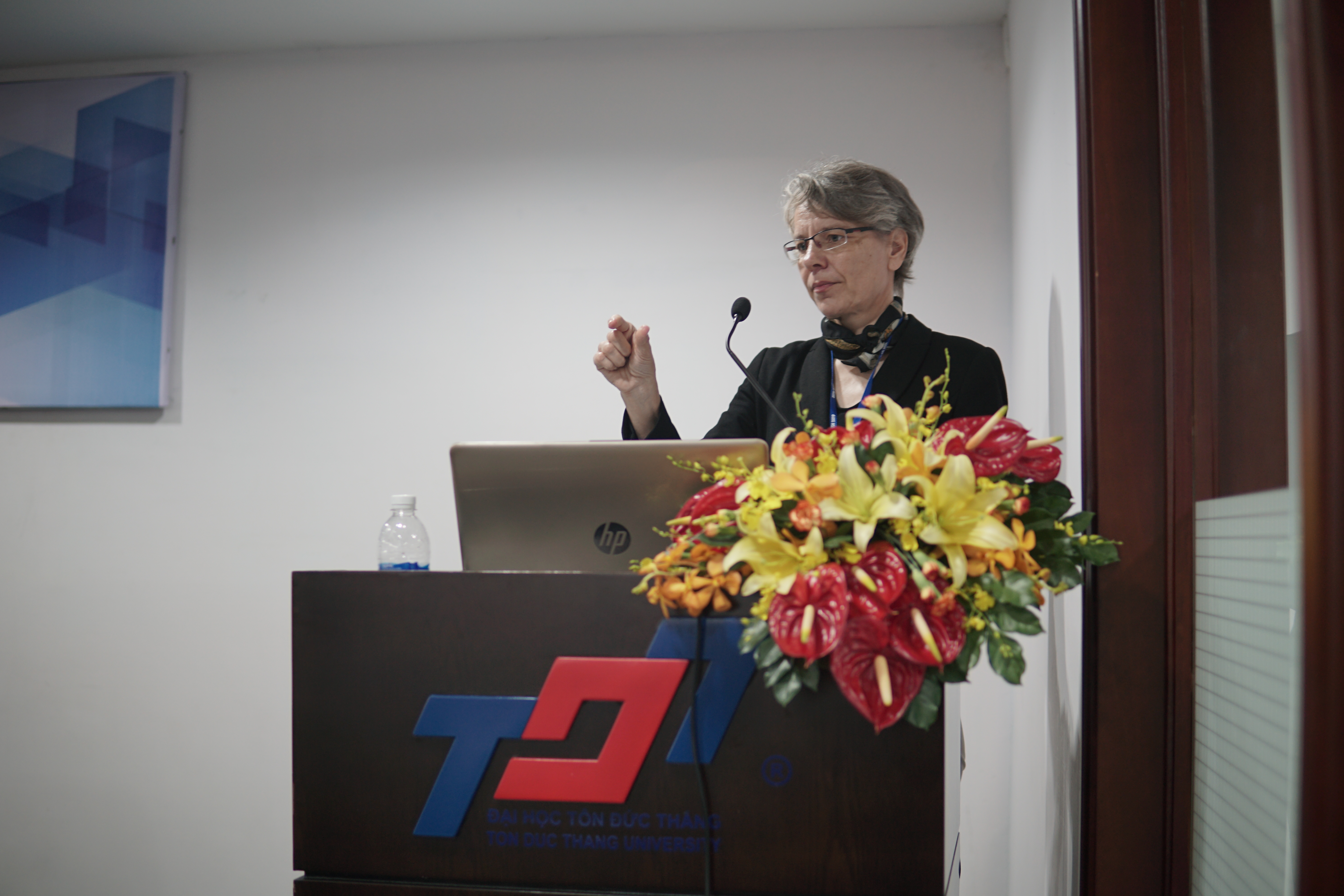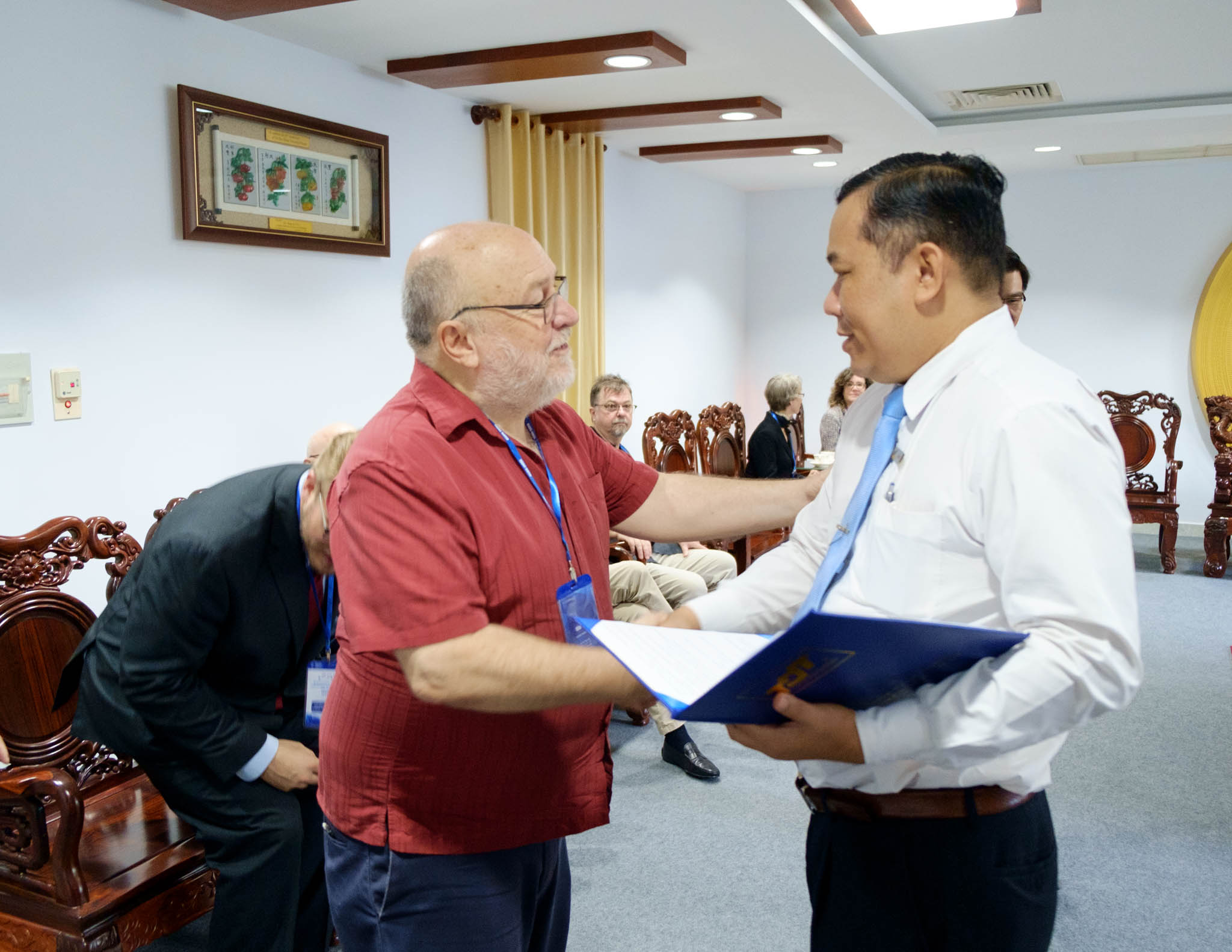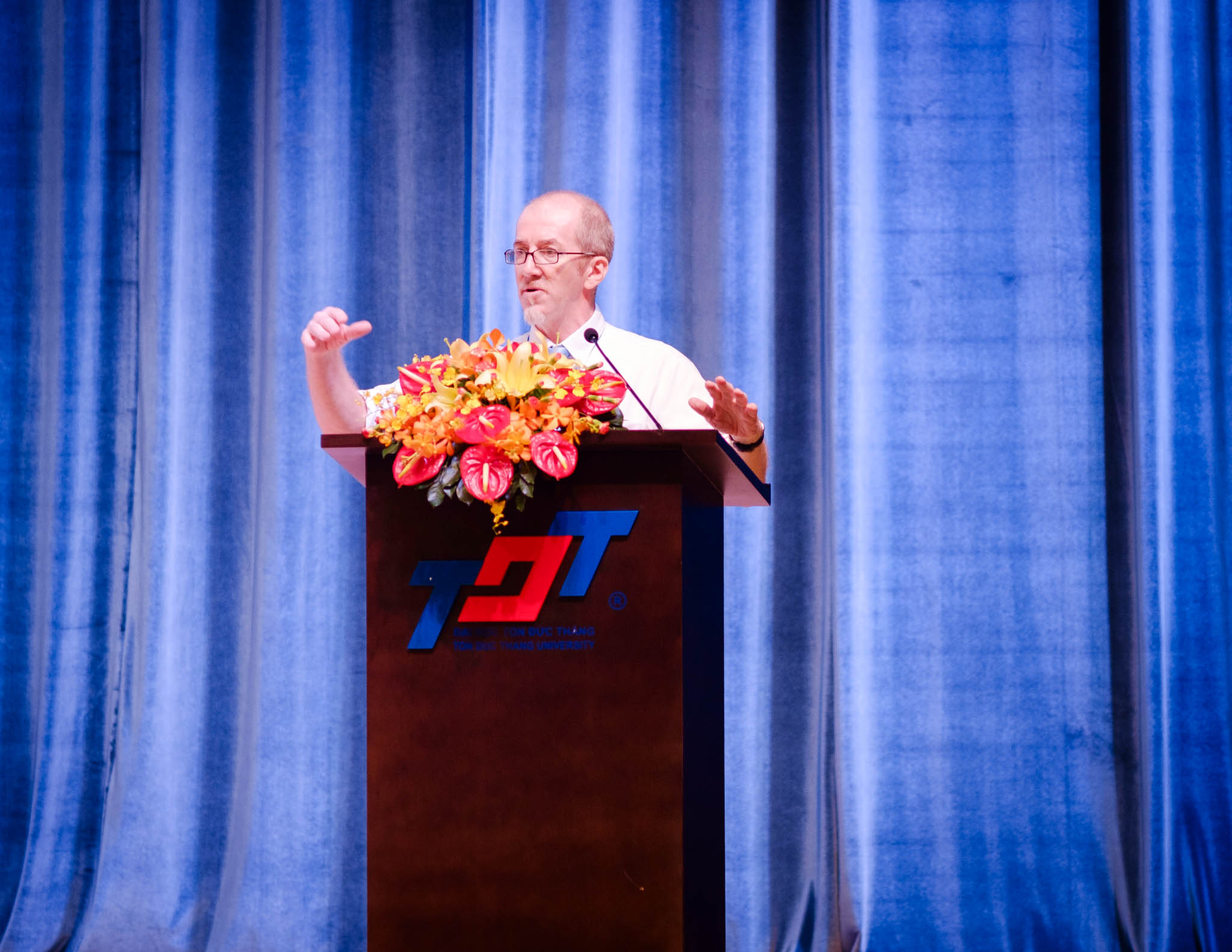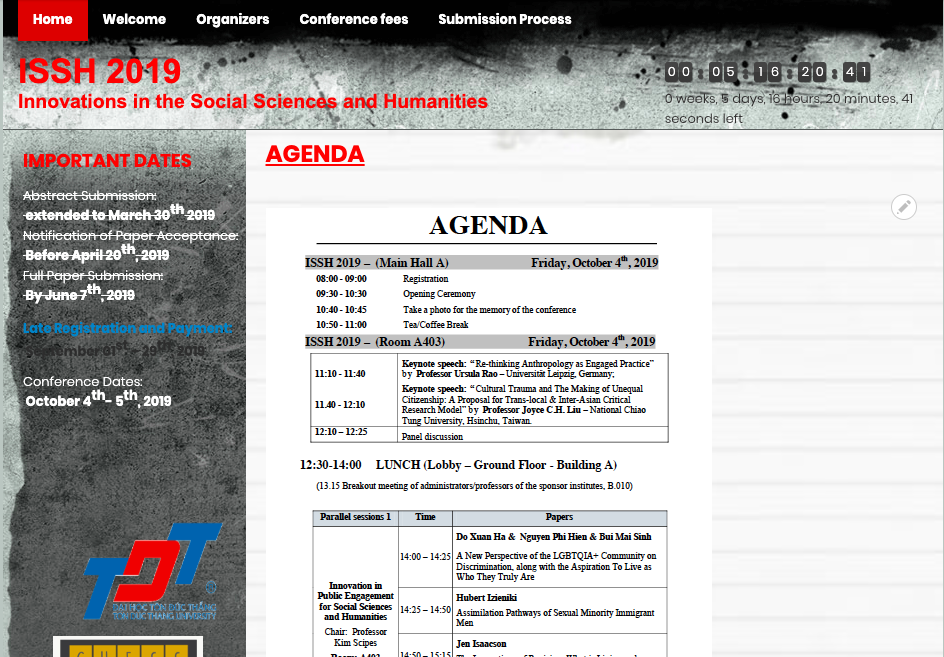
Innovations in the Social Sciences and Humanities
4th and 5th of October 2019.
Ho Chi Minh City, Socialist republic of Vietnam
Welcome to the website for the conference Innovations in the Social Sciences and Humanities, jointly organised by The University of Trieste, Italy; the Universität Leipzig, Germany; National Chiao Tung University, Taiwan; University of Warwick, UK; College of Humanities, Education and Social Sciences (CHESS) at Purdue University Northwest (PNW), USA; and Ton Duc Thang University, Socialist Republic of Vietnam.
Conference Venue – Ton Duc Thang University
Address: 19 Nguyen Huu Tho Street, Tan Phong Ward, District 7, Ho Chi Minh City, Vietnam.
Invitation and Call for papers:
For the International Conference 4-5 October 2019 at Ton Duc Thang University, HCMC, Vietnam, we would like to hear from those working on innovative approaches to public engagement in the social sciences and humanities. Methodological, empirical, archival or conceptual-theoretical work is encouraged, especially where a keen interest in application, consequence, practice or outcome is involved. Sometimes this is called impact on the one side, or intervention on the other, but we are nevertheless interested in all inquiries and investigations which advance the emancipatory possibilities of scholarship in a radically changed global context.
Social and cultural practices in both modern life and in the preservation of historical memory, could suitably connect sociology, social work, history, ethno-anthropology (museums, exhibitions, fairs, monuments, collective ceremonies), cultural tourism, eco-preservation policies, and other urgent contemporary social issues. Comparative studies are welcome, but not the only focus. We are especially interested in deep and detailed studies which have wider significance and suggestions for ‘best practice’. After many years of ‘interdisciplinarity’, or at least talk about this, we are interested to see examples where this works well in practice. We can assume all studies are comparative and interdisciplinary in a way, and all certainly have consequences, implications…
We are especially keen to hear from those working in three overlapping areas of engaged activity: these may be people working as anthropologists, historians, museum and preservation/heritage studies; cultural geographers, sociologists and in cultural studies; or on border studies, migrant labor and workplace and institutional inquiries. Our themes will interact within the structure of the conference, but we are keen in particular to go deeply into each area.
With Innovations in Public Engagement we anticipate discussions of the ways scholarship might best go about communicating in public the experience of the past and of human, cultural and environmental diversity, including technological and bio-political innovations and their contemporary reshaping of pasts and presents. Challenges to questions of who produces scholarship and why, for whom and by whom, can apply to past and present uses of knowledge, where the models of research and inquiry are actively reworked in the face of new public demands.
With Historical/contemporary practices and policies we seek to address issues related to contemporary forms of social conflict, including unequal citizenship and new racisms, the rise of right-wing populist movements and infiltration of religious power in secular governmentality, migrant workers as neoliberal slavery, questions of human trafficking and refugees, developmentalism and environmental pollution, crony capitalism and geo-economic zoning politics.
With Innovations of methodology, training and new skills for the future it seems to us crucial that our work respond to rapid reconfigurations of the very possibility and consequences of engaged social sciences and humanities scholarship. Whether the changing context is imposed by governments by industry or by civil society, when we deal with institutional change and competitive and imperative demands, we do need to develop new tools for knowledge(s) and new sensibilities/sensitivities. Education, reform and responsiveness, new skills and objectives, new modes of investigation and teaching in general. An urgent and targeted focus on how scholarship might remain relevant and critical in the face of global trends – funding cuts, social constraints, new demands, new conservatism, and crises of certitude.
The Socialist Republic of Vietnam will be our venue, but it need not necessarily be the context or focus of all papers, nor are comparative, or East-West or ‘post’ or neo-colonial framings always to be foregrounded in the papers. We are interested however in papers that encourage us to think anew about the implications of where we are and about how to re-orient humanities and social sciences scholarship in contexts where rising tensions in East Asia, Southeast Asia and South Asia call on us to innovate and apply once more.
On acceptance of your paper, we will provide you a letter of acceptance or an invitation letter for your visa application to Vietnam or financial sponsorship from your institution. Therefore, you are encouraged to submit your paper at the earliest time possible.
Language:
The conference proceedings and papers will be in English.
Important dates:
- Abstract Submission: By February 28th, 2019
- Notification of Paper Acceptance: Before March 30th, 2019
- Full Paper Submission: By May 30th, 2019
- Registration and Payment by: August 20th, 2019 (early bird discounts apply)
- Conference Dates: October 4th– 5th, 2019
We look forward to receiving your contributions and kindly ask you to disseminate the call to your colleagues who may be interested in participating the conference.
Please do not hesitate to contact us at issh2019@tdtu.edu.vn if you need any further information.
________
Assoc. Prof. Le Thi Mai, Ph.D
Head of Sociology Department
















